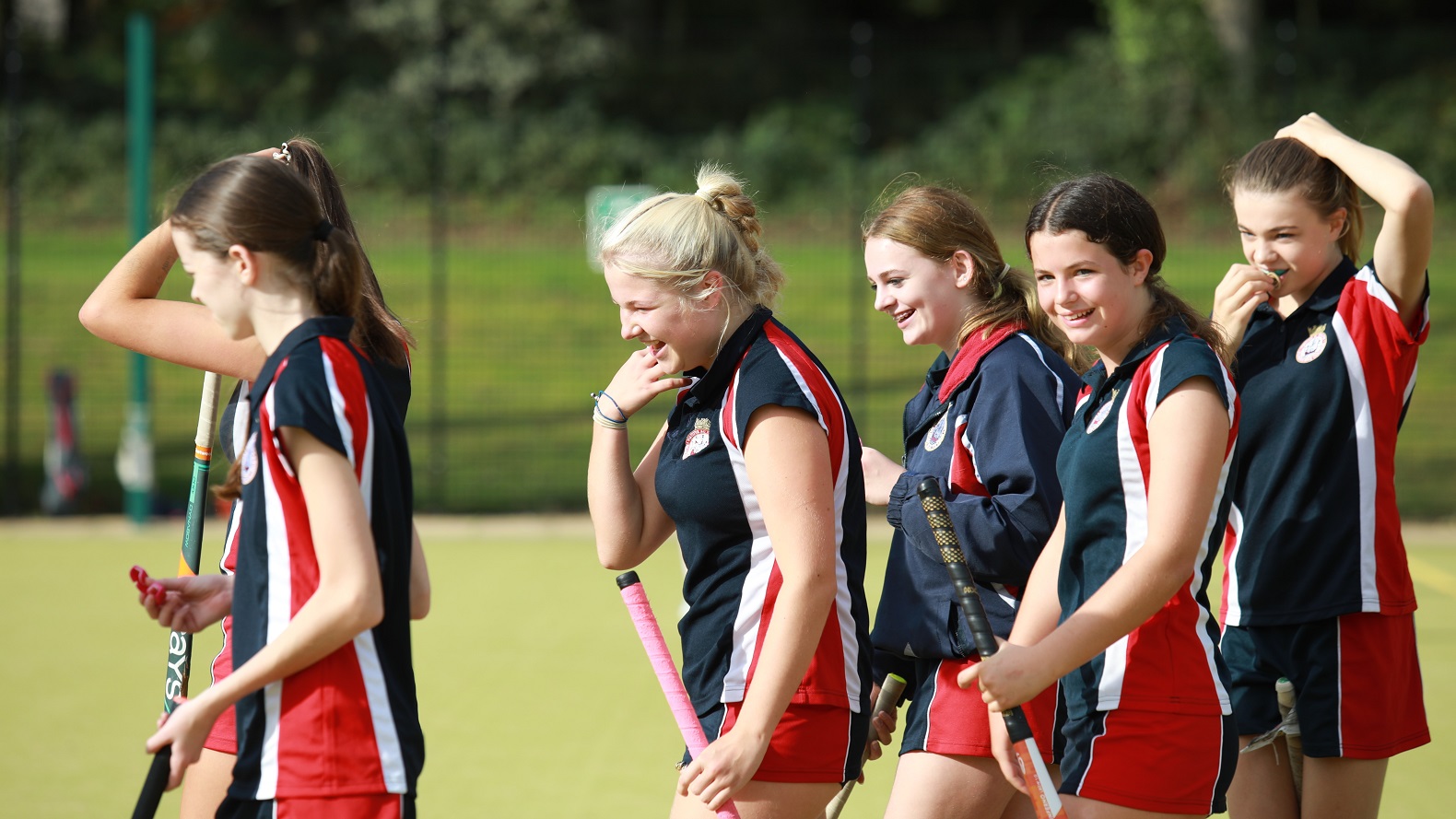
Pupil Mental Health and Wellbeing at Pangbourne College
Even before the global pandemic, there was a growing recognition that children’s mental health and wellbeing was in decline. Back in 2015 research undertaken by the Headmasters’ and Headmistresses’ Conference (HMC) found that depression, eating disorders and self-harm were on the increase. According to headteachers at the time, longstanding stresses had been amplified by increased exam pressure and the anxieties of social media.
Fast-forward to 2022 and those pressures are even greater than ever. Social media is now widely recognised as a main cause of low self-esteem and wellbeing in young adults, and in January 2021, it was cited in a report on young people’s mental and emotional health from the Education Policy Institute and Prince’s Trust.
For those children in private education, there can be increased pressure to do well in their exams and get into the Universities or careers to which they aspire. After all, their parents are paying a premium for their education and these are the expected outcomes from their investment.
Following the cancellation of exams during the pandemic, pupils were denied the ability to demonstrate their abilities, with their results downplayed by the media as the result of ‘dumbed-down’ assessments. It’s no wonder that children today are struggling even more with poor mental health and wellbeing!
So, how are we tackling this issue and supporting our pupils at Pangbourne College?
It all starts with culture
We are a community where pupils can flourish and this cannot happen unless everyone puts pupils at the heart of everything we do. Our Flag values of Kindness, Selflessness, Moral Courage, Initiative, Industry, Resilience, Respect and Integrity underpin all of our activities, from class rewards to staff recruitment, and they help to create a secure and respectful environment in which our pupils can thrive.
As a result of our ethos, positive mental health and wellbeing is accepted as an important aspect of College life and everyone, including staff, pupils and parents is encouraged to engage in those activities which will promote them.
As a boarding and day school, we have a house structure which provides a firm base for pastoral care which benefits day and boarding pupils alike. Every pupil belongs to a boarding house (which we call a Division), staffed with Housemasters/mistresses (HoMs), Assistant HoMs, Matrons, Visiting Tutors and Housekeepers. They are the first port of call for pupils who have any wellbeing concerns, and this enables us to provide far more effective pastoral care than if our staff only ever engaged with pupils in the classroom or during tutor time.
Identifying and addressing mental health issues
The key thing to acknowledge is that mental health issues in children are not necessarily long-term issues, and they certainly should not define who that child is or will become. Quite often, a small but early intervention can reduce, or even prevent mental health issues further down the line.
For those pupils with mental health concerns, we provide tailored, multi-layered support. One of the many benefits of being a small school (of fewer than 500 pupils) is that our staff have plenty of interactions with the pupils and it is far easier for us to share information and ideas for how we can support pupils to deal with their particular issues.
Our Common Room Pastoral Meetings are an opportunity for various members of staff to update our ‘traffic light’ system which is shared across the school. This ensures that everyone is aware of a particular pupil’s situation; behaviours to look out for and actions to take, if necessary.
We have had a College counsellor for the last 20 years, and I believe that we were ahead of our time when we took that step to provide expert onsite counselling. All pupils have access to the counsellor who is based in our Health and Wellbeing Centre. The centre also has a ‘quiet room’ which is equipped with refreshments and tactile tasks such as puzzles; it’s available to any pupil, at any time, if they feel the need to take some time out and ‘reset’.
We use AS Tracking, a social-emotional assessment tool which flags pupils who are at risk of mental health issues and enables us to put a plan in place to address them. This is an excellent tool for uncovering issues which pupils may be hiding; as much as we try to make them believe otherwise, unfortunately for some, there is still some stigma around admitting that they are not OK.
In addition, our Peer Mentoring programme helps to create an ethos of care and kindness across the College. Almost all our senior pupils volunteer to be trained as mentors and will take responsibility for younger pupils who often feel more comfortable talking through their problems with a peer, rather than a member of staff. Our Sixth Formers tell me that they really enjoy this aspect of being a student at Pangbourne College and experience a real sense of joy in serving others.
Of course, it’s absolutely essential that we work in partnership with parents, who are often struggling as much as their child is to understand what is happening, let alone how to support them. Our online Wellbeing Hub from TeenTips is available to our parents and provides excellent, practical advice on how to support their children. Over 90% of parents have registered for the service so far, and our pupils also have access to the resource, which empowers them to look after their own mental health.
Healthy body, healthy mind
Another key factor which affects young people’s mental and emotional health, identified in the report from the Education Policy Institute and Prince’s Trust, was frequency of exercise. At Pangbourne, sport is a key aspect of College life. It brings our community together, creates the spirit of ‘Team Pangbourne’ and demonstrates our Flag Values. Physical activity takes place four times a week and we have a strong reputation for rowing, rugby, hockey and horse-riding. These outdoor pursuits enable our pupils to be outside and benefit from good old-fashioned ‘fresh air and exercise’ which has been proven time and again to improve mental health and wellbeing.
Our ceremonial traditions also have their place in helping to improve pupils’ wellbeing. From Year 9, our pupils participate in parades several times a year, and will do marching practice once a week. Again, this gets our pupils outdoors and exercising, and studies have shown that repetitive, rhythmic movement can be especially beneficial for children with learning difficulties. The whole College performance of the parade also brings together our community, and encourages teamwork, discipline and resilience: all key characteristics of positive mental health and wellbeing.
Building resilience
Prevention is always better than cure, and so we do as much as we can to help pupils to develop positive strategies to take care of themselves and cope with life’s inevitable ups and downs.
We encourage them to undertake all sorts of activities which foster a strong sense of resilience; in other words, the ability to face, overcome and ultimately be strengthened by challenges. These include The Duke of Edinburgh’s (DofE) Award and the Combined Cadet Force (CCF) Programme.
We are licensed to provide the three levels of DofE Award: Bronze (which all pupils do in Year 9) Silver and Gold. Around a third of Sixth Formers will do the Gold Award. The combination of volunteering, physical activities, skills-based exercises and expeditions give an all-round experience which is fun, rewarding and recognises a young person’s journey of self-discovery and development. Our beautiful campus of 230 acres offers ample space for pupils to train for their expeditions.
All pupils in Year 10 participate in the CCF programme and can choose whether to continue it beyond the second term of Year 11. The programme is split into three sections: Army, Royal Marines and Royal Navy, each providing pupils with self-discipline, teamwork and leadership skills.
In conclusion
I am hopeful that a time will come when we no longer need to adopt all of the strategies and tools that we have in place for supporting those pupils who, for whatever reason, find that they are experiencing mental health issues.
Until then, I am proud to be working within a school which is so progressive in its approach to promoting good mental health and wellbeing, and continues to put the individual pupil at the heart of everything it does. After all, it is this ethos which enables our pupils to flourish, not only in their education, but in all aspects of their lives.
Caroline Bond, Assistant Head, Pupil Mental Wellbeing, Pangbourne College







